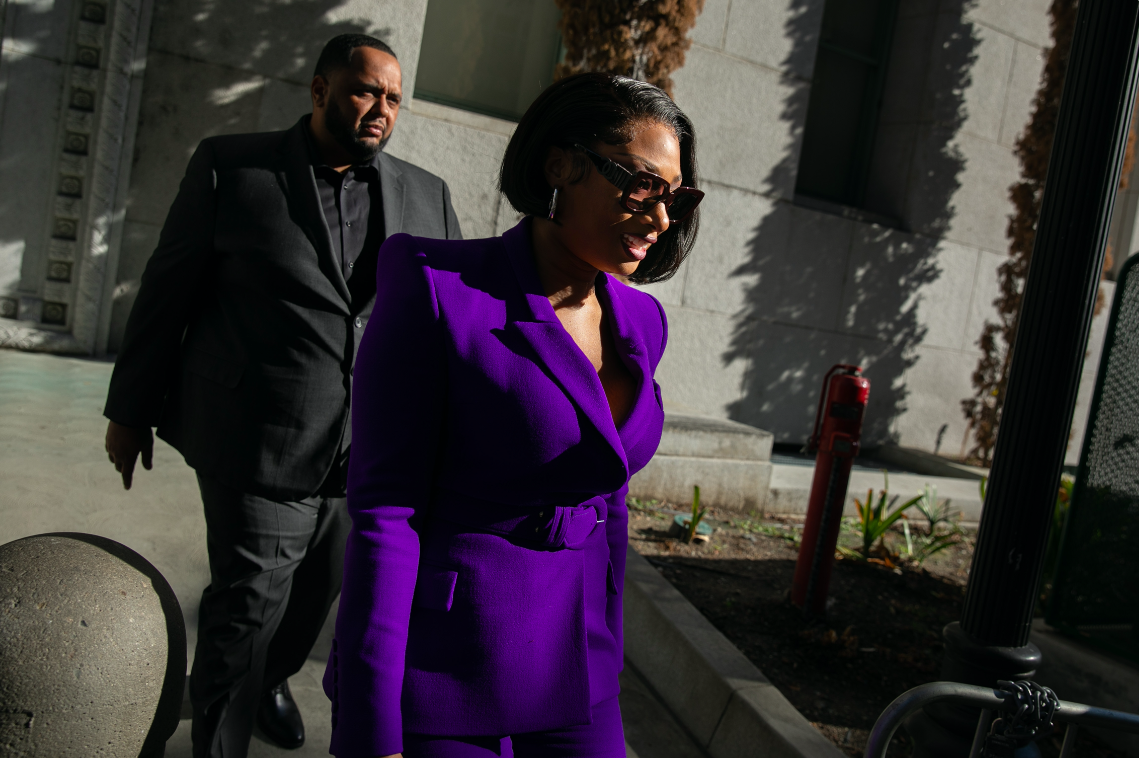If you were binge-watching over the weekend, there’s a high probability that there were one of two things occupying your television screen; Orange Is The New Black or FIFA’s World Cup action. It may not seem obvious, but there are a litany of similarities between both sources of entertainment.
Orange Is The New Black's fictional women's prison is a surprisingly accurate parallel for the unscrupulous, avaricious culture that exists within FIFA.
FIFA has the same eclectic group of recidivists heading its cast as Netflix’s most anticipated summer release. The only difference is that the prisoners run FIFA’s asylum.
The first 48 hours of the 2014 World Cup only exasperated concerns about the organization’s ability to stage a legitimate sporting event after the first two marquee matches were marred by brow-raising officiating.
The first dubious call occurred during Brazil’s opening match against Croatia when Brazilian forward Fred took a dive after getting his left arm grazed by defender Dejan Lovren.

The Seleção were awarded a penalty kick, which Neymar converted to give Brazil a 2-1 lead. The official who made the call was also responsible for making several fishy calls during the 2010 World Cup in South Africa, prompting many fans, and even fellow World Cup participants, to suggest that the fix is in for the host country.
Conversely, Neymar was given a yellow card earlier in the march for his forearm thrust into the neck of Luka Modric. The play was worthy of a red card, but ostensibly that would have resulted in television audiences watching the most scrutinized player of this tournament being sent off for the remainder of Brazil’s opening match and being banned from the next. The conspiray theories were being written on autopilot.
One day later, Mexico had two Giovani dos Santos goals waived off against Cameroon because of poor offsides violations.
The first offsides penalty in the 11th minute was a little close to the naked human eye, but ultimately showed that dos Santos was onside when the ball was booted in his direction.

However, the second offsides violations was one of the more embarrassing calls of the tournament (thus far) as a Cameroonian defender deflected the ball towards dos Santos who headed in his “second” goal.
A potential “third” goal was pulled off of Mexico’s plate in the 52nd minute when dos Santos was illegally tackled while making a run in the box by a Cameroonian defender.
Mexico still prevailed 1-0, but the damage was done. If goal differential comes into play between Brazil, Croatia, Cameroon or Mexico in Group A, this will be the genesis of a grand puba conspiracy.
Whether these calls represent an aspect of FIFA’s nefarious objective or are the actions of incompetent official is up for debate. However, it wouldn’t be below FIFA’s standards to be involved in another scandal of this sort.
American sports fans swap conspiracy theories about dirty officiating like Pokemon trading cards, but most of the time it’s just a result of human error cycled through the unforgiving minds of the masses that have the Tim Donaghy scandal seared into their brains. Accusations of fixed sporting events roll off the tongue of North American sports fans much like the boy who cries wolf.
Allegations of biased officiating in the United States are the sports equivalent of first world problems.
FIFA is the rabid wolf with blood-stained fangs. Last month a New York Times investigation uncovered evidence of officials being bribed to manipulate the outcome of as many as 15 exhibition matches leading up to the 2010 World Cup by a shadow organization known as Football 4U International, serving as the guise for a match-fixing syndicate.
Officiating controversies are just the first page of FIFA’s checkered history of scandal and Brazil is just the latest chapter in paperback.
Brazil is funding the most expensive World Cup to date at a cost of $11.3 billion as if MC Hammer were their treasury secretary, whereas FIFA is assuming none of the costs and reaping all of the revenue. The most egregious infrastructure spending Brazil has spent so far is the 44,500 seat Amazonia Arena in a remote area of Brazil that will become most useful as tourist monuments after hosting four World Cup matches.
No wonder the 2014 World Cup logo is a facepalm.

The human rights violations that FIFA has turned a blind eye to in Qatar are enough to make you want to turn both eyes away from the 2014 World Cup, as workers being paid criminally low wages are among the lucky ones. Another 400 workers have perished on World Cup projects since the 2022 Cup’s coordinates were announced and thousands of immigrant workers are essentially slave labor who cannot leave the country without the authorization of their employers.
While America’s major domestic leagues aspire to reach across the Atlantic, FIFA has already accomplished world domination, leaving President Sepp Blatter to consider the future of football on other planets.
“We shall wonder if one day our game is played on another planet,” Blatter said the day before the 2014 World Cup opener. “Why not? Then we will have not only a World Cup, we will have interplanetary competitions. Why not?”
As ridiculous as that notion sounds, keep in mind that the 2022 World Cup will be held in Qatar, which might as well reside in another solar system.
The choice of Qatar as a site sounded bizarre four years ago, but recent revelations have rationalized the selection of an emirate with no domestic league, miserable temperatures that swell to approximately 110 degrees in the summer months and that struggled with drawing attendance for the 2011 Asian Cup in January.
After years of speculation, a recent investigation uncovered $5 million of bribes paid by former President of the Asian football confederation Mohamed bin Hammam to FIFA power brokers.
The appalled expressions etched onto the faces of the sports media has been priceless considering the totality of everything we’ve uncovered about Blatter’s Nixonian FIFA presidency in the past 16 years.
It’s not a coincidence that half of President Blatter’s 25-member executive committee, which votes on World Cup sites has gotten swept up in one ethics investigation or another.
FIFA’s previous Vice President Jack Warner and Hammam were suspended three years ago for allegedly offering bribes to the Caribbean football association committee at a meeting in May 2011, five months after Qatar won their bid to the Cup. Warner resigned, prompting a giddy Blatter to announce that, “As a consequence of Mr. Warner's self-determined resignation, all ethics committee procedures against him have been closed and the presumption of innocence is maintained.”
While Blatter himself has never been linked to bribery accusations, it’s safe to say he at least revels in the stench of secondhand corruption.
David Yallop’s 1999 book How They Stole the Game detailed the lengths Blatter took to ascend to the FIFA presidency including his procurement of votes by delivering $50,000 in envelopes as bribes to African delegates at Paris' Meridien Montparnasse hotel.
Renowned German legal scholar Günter Hirsch, resigned from FIFA's ethics commission in early 2011 over frustration with Blatter’s apathy towards stomping out the rampant corruption plaguing his rogue organization.
FIFA is Sepp Blatter’s septic tank and he has no qualms about submerging his organization in dirty money.
The corruption element is as prevalent within FIFA’s cells as Hydra is within S.H.I.E.LD. The only way to begin crushing it may be by cutting the head off the beast and sending him as far away from his seat at the head of the powerful pro sports entity as possible. Instead of replacing the 25-member international committee, major reform is needed to reshape FIFA into a technocratic structure that awards nations given the best assessment from experts to avoid debacles like the one taking place in Brazil and awaiting the World Cup in eight years.
For now, jetting Blatter to another planet is technologically implausible, but there is a middle ground to be reached. Like the World Cup’s 32 participants, he and his executive branch should be ousted from FIFA leadership positions in succession.



